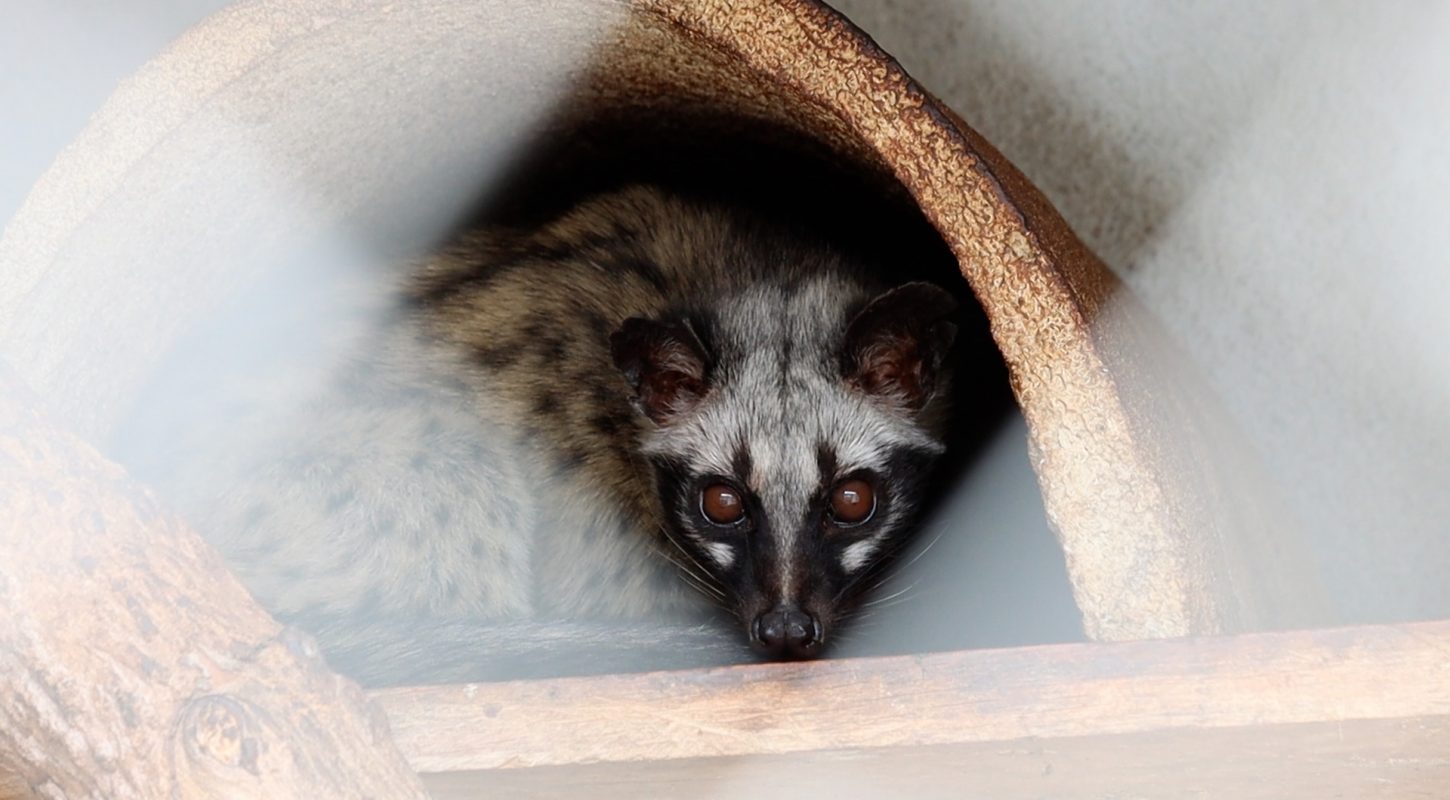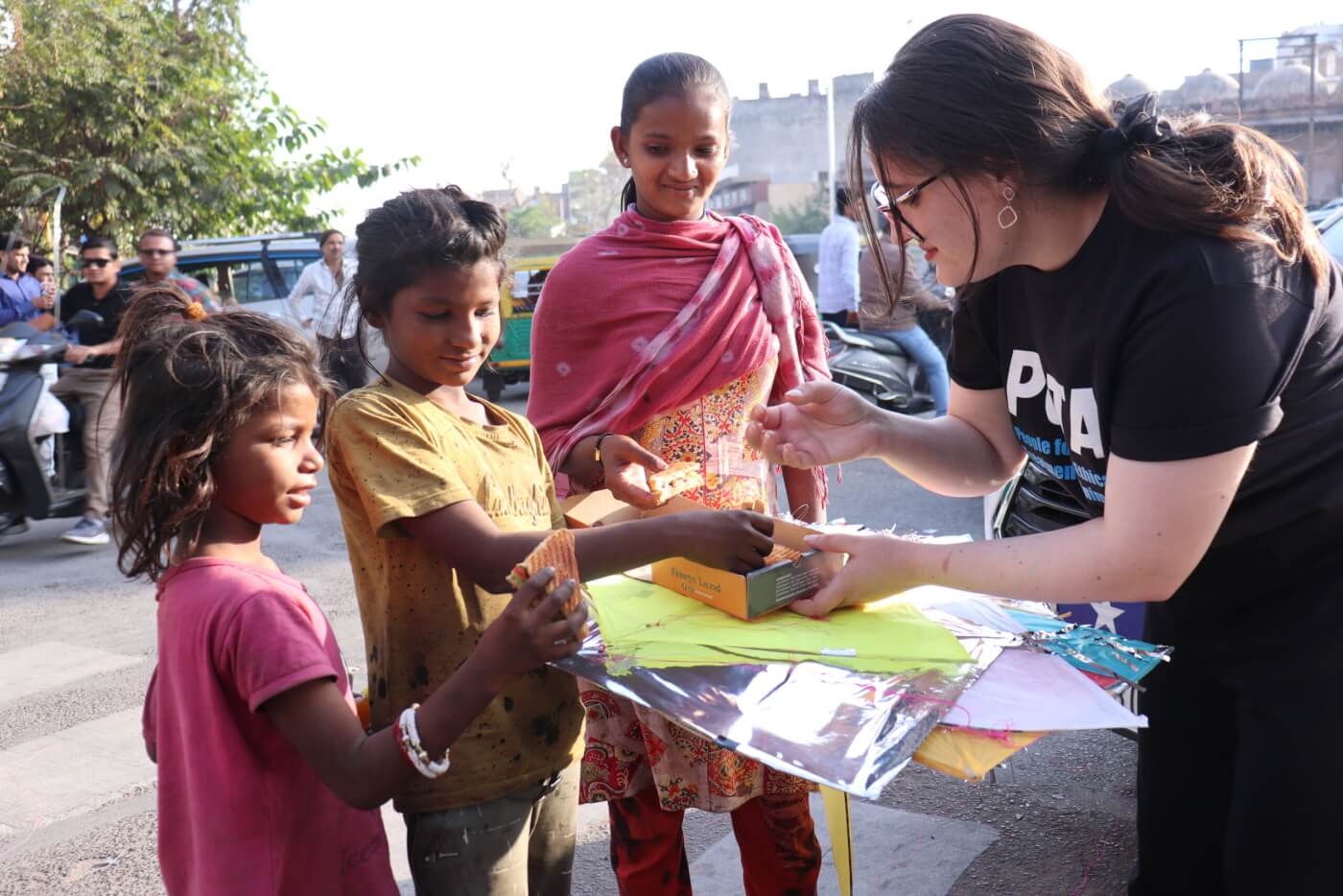Whether it’s kickstarting your day, or revitalizing your energy after a restaurant meal, coffee is a beverage we are all familiar with. Not only is coffee a daily ritual for many of us, but there is also an ever-growing interest in specialty varieties — coffee with unique taste profiles generated from meticulous growing, selecting, and brewing methods. However, you might be surprised to learn that the world’s most expensive and famous coffee comes from the back end of civets, a cat-like animal found throughout southeast Asia.
What is civet coffee?
Civet coffee (also known by its Indonesian name, Kopi Luwak) is the most rare and expensive coffee in the world, due to its unique production method — pre-digestion by civets.
As the story goes, wild civets would sample from the coffee plantations that surrounded their forest home, selecting the ripest coffee cherries for consumption. The civets would then leave undigested coffee beans in their droppings, which pass through the civet intact. These beans were harvested and roasted like other coffee beans. Proponents of civet coffee say that the cat’s digestive enzymes alter the coffee’s structural and taste characteristics.
Today, civet coffee is marketed to consumers for its perceived rarity and smooth taste. Civet coffee was brought to international attention in 2003 by Oprah Winfrey and again in the 2007 film The Bucket List (starring Jack Nicholson and Morgan Freeman). Soon after, civet coffee became second only in value to oil with prices reaching as high as $50 per cup. Yet civet coffee is not what it seems; it is neither rare, best-tasting nor the most expensive.
What then, is the true cost behind the world’s most famous cup of coffee?
The rising demand for civet coffee has brought about a significant change in its production method. No longer do farmers rely on droppings left by civets visiting plantations at night. Now, civets are captured and caged for mass civet coffee production. This has led to civet coffee becoming a booming tourism industry.
Across Asia, tourists are invited to curated attractions to see the bean-to-civet-to-cup production methods of civet coffee. In the recent documentary From Rare to Reckless, produced by The Civet Project Foundation, researchers traveled to Vietnam to uncover the truth behind civet coffee. In the award-winning documentary, which premiered earlier this year, the researchers made three discoveries:
1. Animal Welfare
Animal welfare is severely compromised in civet coffee farms and tourist attractions. As a nocturnal, solitary, and tree-dwelling species, a civet’s needs cannot be met in small, barren cages. In civet coffee farms and tourist attractions across Asia civets languish without access to suitable environments, exercise, and nutrition. The force-feeding of coffee cherries eventually causes death by caffeine toxicity. Existing in cramped cages for many years at a time, civets frequently suffer from psychological distress and physical trauma. Common symptoms include pacing and self-mutilation as civets bite their own tails in attempts to cope, and many endure painful injuries from when they were captured from the wild.
2. Conservation
Civets are important species for their ecosystem. Their wide ranges and varied omnivorous diet combined with the physical properties of their digestive tract, make civets important seed dispersers and germinators. Removal of seed dispersers has a knock-on effect on many species of plants and the animals who rely on them. Without civets, forest health can be severely impacted.
Due to the rising demand for civet coffee, civet coffee production is contributing significantly to Southeast Asia’s biodiversity crisis. Indiscriminate traps are placed throughout civet habitats which catch large numbers of civets as well as other, unintended, species.
3. Human Health
Although civets are important species for nature, they can pose a danger to humans when they are exploited. Civets, like many wild mammals, can carry diseases that can pass to humans. Civet coffee farms and tourist attractions are generally unhygienic. Cramped and dirty conditions provide the ideal environment for the emergence of disease. With so many workers and tourists handling civet feces, the risk of disease spreading from civets to humans is significant.
Is there hope for civets?
This year, for the first time, world-leading travel companies placed a ban on the sale of civet coffee attractions on their website. It is no longer possible to buy tickets to civet coffee attractions on Tripadvisor, Booking.com, Viator, TUI, AirBnB or Klook, thanks to the work of The Civet Project Foundation.
This milestone achievement for civets came from the first-of-its-kind Industry Leaders Report ‘Tackling the Civet Coffee Tourism Industry’, which launched alongside The Civet Project documentary. In the report, the role of the travel industry in promoting and selling civet coffee was investigated. The report showed that despite 90 percent of world-leading travel companies having an animal welfare policy, all were still selling tickets to civet coffee attractions on their platform. This was not only unethical, but it misled consumers into thinking civet coffee was not an area for concern.
Speaking of the travel industry’s boycott of civet coffee tourism, Founder of The Civet Project Foundation, Dr Jes Hooper explained: “We are extremely grateful and proud of the leading travel companies who have committed to the boycott of civet coffee. This is a world first for civet protection and will help protect travelers, civets, local ecosystems and communities.”
Is it possible to consume civet coffee ethically?
Despite the claims of some coffee suppliers that their civet coffee comes from wild collection methods, the likelihood of this claim being authentic is extremely doubtful. Without expensive and time-consuming laboratory tests of entire batches, there is no quick or economical way to test civet coffee authenticity. Whilst certification schemes for civet coffee may at first appear favorable, the inability to test for product authenticity means that certifiers rely on visiting establishments who can simply conceal their caged practices.
Corruption is certainly no new phenomenon within the civet coffee industry. Undercover investigations have proved that regular coffee is commonly labeled as civet coffee to enter the international market where it will be sold at wildly inflated prices. Indeed, the global scale to which civet coffee is available for purchase should be indication enough that this product is not rare. The claim of civet coffee rarity is just a gimmick that secures an elevated economic status. A recent study found that even humans could produce human-digested coffee with similar characteristics to coffee predigested by civets!
Is civet coffee worth the cost?
A wealth of evidence concludes that civet coffee is bad for animals, the environment, and humans. With this in mind, we will be keeping our daily coffee ritual ethical and safe by opting for undigested varieties.
Dr. Jes Hooper is a postgraduate researcher in Anthropology at the University of Exeter, and a member of the IUCN SSC Small Carnivore Specialist Group. Learn more at www.thecivetproject.com and watch the film ‘Civet Coffee: From Rare to Reckless’ at Ecoflix. You can donate 100% of your Ecoflix subscription to The Civet Project Foundation.


